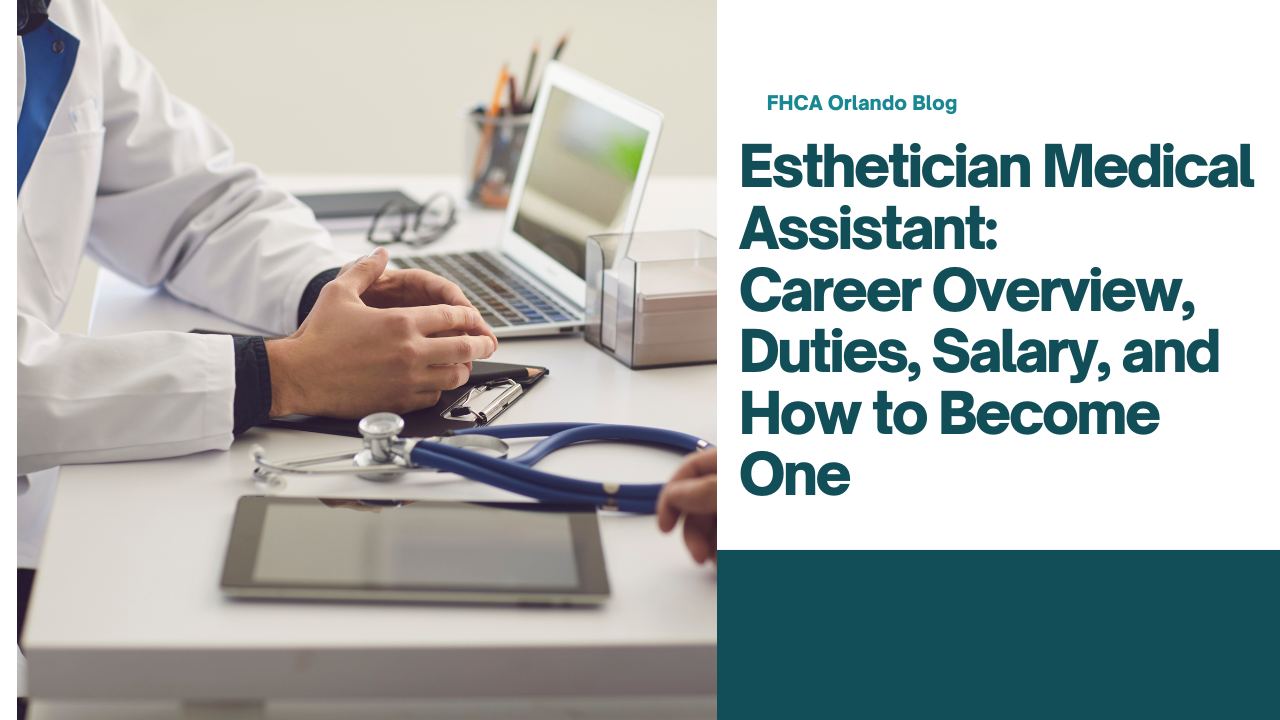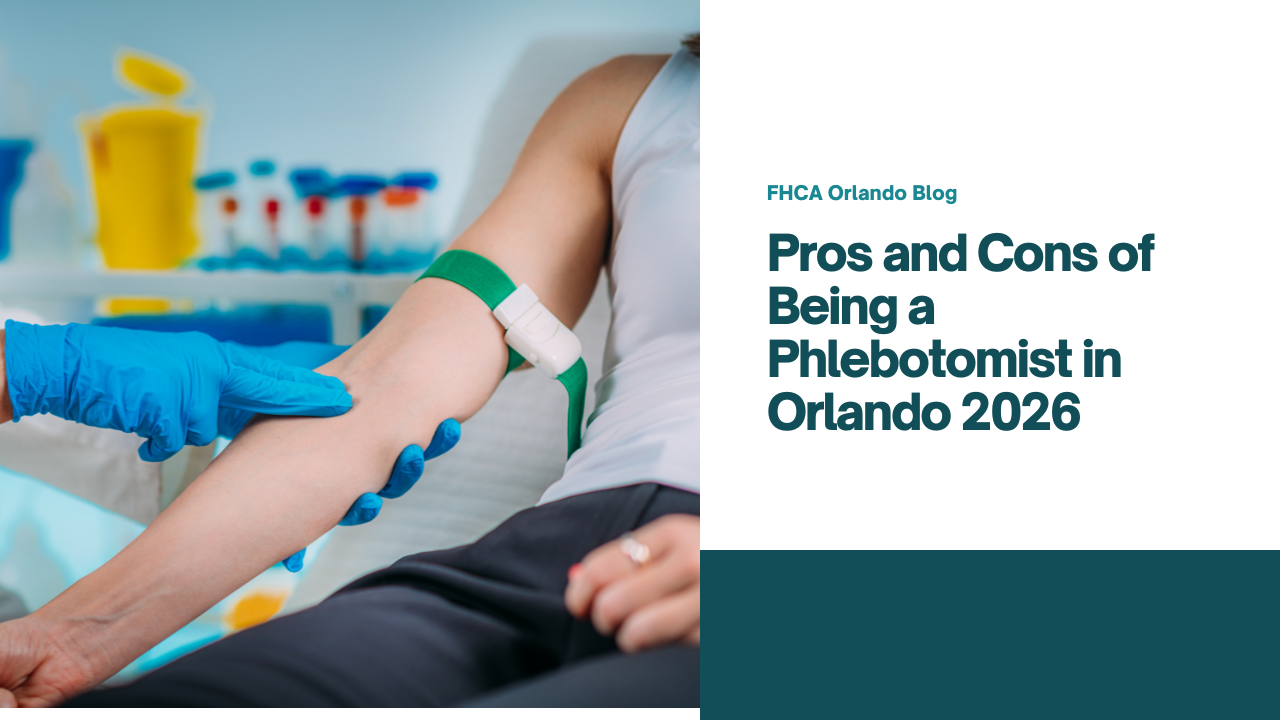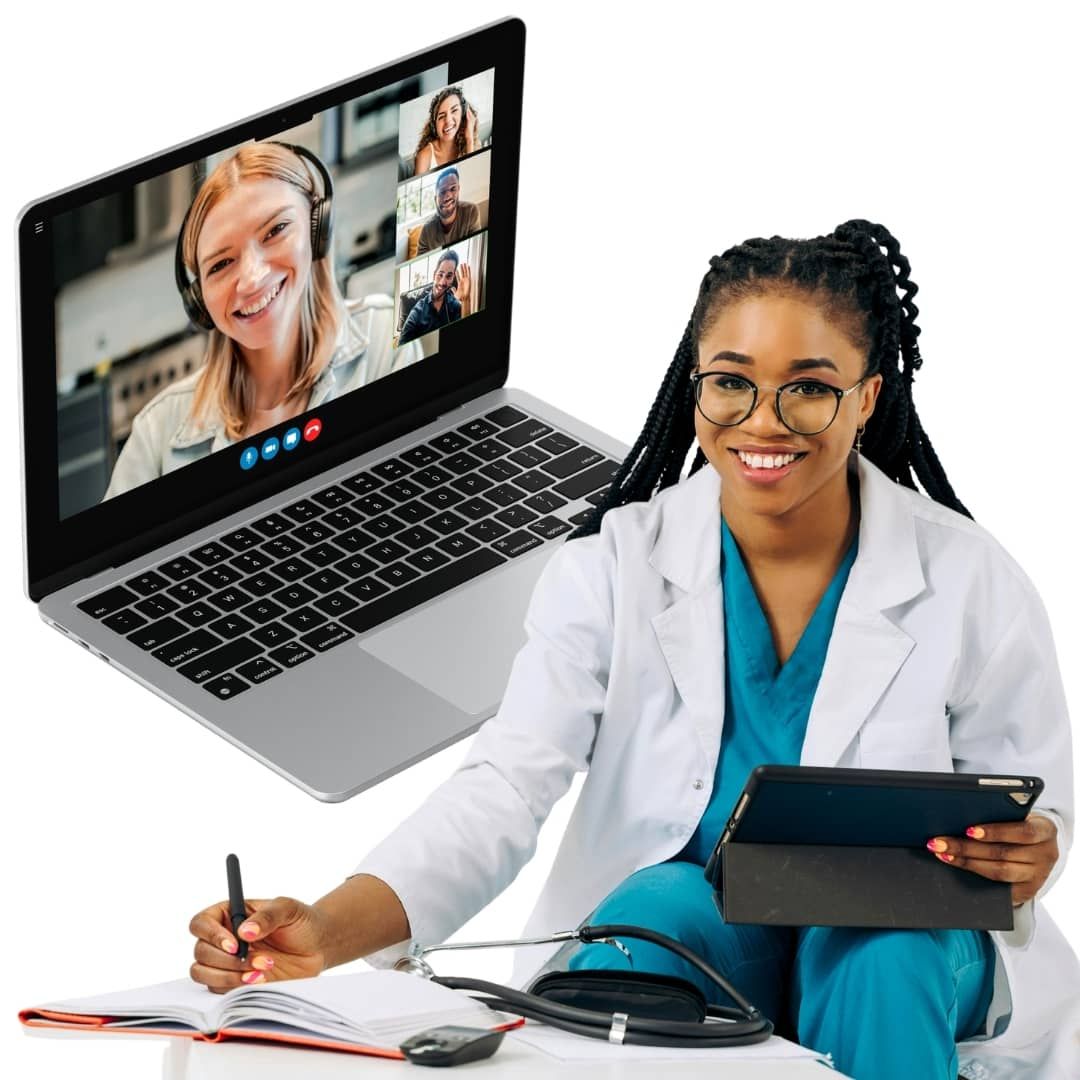How to Get Phlebotomy Experience: A Guide to Build Your Career
Oct 01, 2024
Starting a career in phlebotomy can be both exciting and rewarding. However, to excel in this field, gaining practical experience is the key.
Whether you are just starting or seeking to enhance your skills, this guide will provide you with essential steps to help you build a successful career in phlebotomy.
Below, you will find tips on certification, volunteering, networking, phlebotomist education requirements , and other vital strategies that can jump-start your journey as a phlebotomist.
Table of Contents
- Get certified as a phlebotomist
- Find volunteering opportunities
- Pursue internships and externships
- Network with healthcare professionals
- Use continuing education courses to improve your skills
- Apply to entry-level phlebotomy positions
- Start building your phlebotomy experience at FHCA
Get certified as a phlebotomist
The first and most important step to gain experience in phlebotomy is getting certified. Certification increases your employability and helps you build the foundational skills required for the job. Understanding what can you do with a phlebotomy certification is essential, as it opens doors to various opportunities in healthcare and beyond.
To begin your certification journey, check out a reputable Phlebotomy program that fits your schedule.
After completing the program, you’ll need to understand how to get a phlebotomy certification, as this is often a requirement for most healthcare facilities. Learning the phlebotomy procedure step by step during your training is crucial to building confidence and ensuring accuracy in every task you perform.
Find volunteering opportunities
Volunteering is an excellent way to gain practical experience without committing to a full-time job. It allows you to develop your skills while giving back to the community.
Many hospitals, clinics, blood donation centers, and other healthcare facilities offer volunteer positions for individuals interested in phlebotomy.
Where to find volunteer opportunities
Some of the best places to look for phlebotomy volunteer opportunities include the American Red Cross volunteer portal and local blood banks.
You can also explore opportunities on platforms like VolunteerMatch.org and Idealist.org. These organizations often need volunteers, providing a great opportunity to practice your phlebotomy skills.
Pursue internships and externships
Many healthcare facilities offer internships and externships specifically for aspiring phlebotomists.
These programs give you hands-on experience under the supervision of professionals, helping you to build confidence and improve your techniques. Internships can be the stepping stone to paid entry-level positions.
Network with healthcare professionals
Networking is a valuable tool for gaining phlebotomy experience. Connecting with experienced healthcare professionals can provide you with mentorship opportunities, insights, and job leads.
Attend healthcare conferences, join phlebotomy-related forums, and make use of social media platforms like LinkedIn to grow your professional network.
Use continuing education courses to improve your skills
Continuing education is key to staying updated on the latest techniques and advancements in phlebotomy.
You can enhance your skills and increase your employability by taking specialized courses.
Explore the various skills needed to be a phlebotomist and consider signing up for courses to stay ahead. Explore our continuing education courses today!
Apply to entry-level phlebotomy positions
Once you’ve built some experience through certification, volunteering, and internships, it’s time to apply for entry-level positions.
Most employers will require you to pass a phlebotomy background check before hiring, so be prepared to provide the necessary documentation.
How to write a phlebotomy resume with no experience?
Crafting a resume without direct work experience can feel daunting, but with the right strategy, you can still make a strong impression.
The key is to focus on your education, transferable skills, and any relevant volunteer or internship experience.
Emphasize relevant education and credentials
Your education and certifications are the foundation of your resume.
Highlight any phlebotomy-related courses and certifications you’ve completed, as these demonstrate your qualifications and commitment to the field.
Be specific about your training and include details that show your preparedness for the job.
Highlight transferable skills
Even without hands-on experience, you likely possess valuable skills that apply to phlebotomy.
Emphasize abilities like attention to detail, communication with patients, and time management—these are crucial in a healthcare setting.
Tailoring these skills to the phlebotomy role will help show employers you have the essential qualities for success.
Include all your volunteer work and internships
Any volunteer work or internships, even those outside of phlebotomy, can demonstrate your ability to work in a team and handle responsibilities.
Be sure to include details of any healthcare-related experiences, such as assisting in blood drives or working in medical facilities, as these show your dedication to gaining practical experience and learning on the job.
Start building your phlebotomy experience at FHCA
Ready to kickstart your phlebotomy career? FHCA offers excellent opportunities to gain hands-on experience in a professional healthcare environment.
From internships to entry-level positions, FHCA provides a supportive setting for you to grow your skills and advance in your phlebotomy journey.
By following these steps, you’ll create a resume that highlights your strengths and sets you up for success as you pursue opportunities in the field of phlebotomy.











